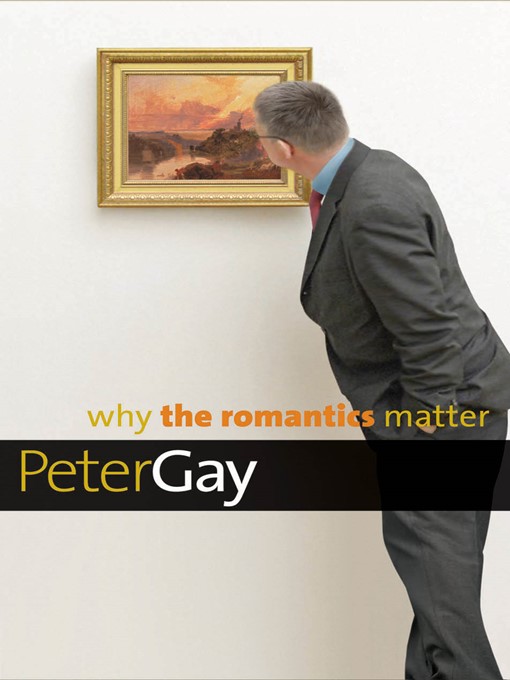A renowned scholar's reflections on the romantic period, its disparate participants, and our unacknowledged debt to them
With his usual wit and élan, esteemed historian Peter Gay enters the contentious, long-standing debates over the romantic period. Here, in this concise and inviting volume, he reformulates the definition of romanticism and provides a fresh account of the immense achievements of romantic writers and artists in all media.
Gay's scope is wide, his insights sharp. He takes on the recurring questions about how to interpret romantic figures and their works. Who qualifies to be a romantic? What ties together romantic figures who practice in different countries, employ different media, even live in different centuries? How is modernism indebted to romanticism, if at all?
Guiding readers through the history of the romantic movement across Britain, France, Germany, and Switzerland, Gay argues that the best way to conceptualize romanticism is to accept its complicated nature and acknowledge that there is no "single basket" to contain it. Gay conceives of romantics in "families," whose individual members share fundamental values but retain unique qualities. He concludes by demonstrating that romanticism extends well into the twentieth century, where its deep and lasting impact may be measured in the work of writers such as T. S. Eliot and Virginia Woolf.
-
Creators
-
Series
-
Publisher
-
Release date
January 28, 2015 -
Formats
-
OverDrive Read
- ISBN: 9780300210095
-
EPUB ebook
- ISBN: 9780300210095
- File size: 2213 KB
-
-
Languages
- English
-
Reviews
-
Publisher's Weekly
December 1, 2014
In this brief but illuminating celebration of romanticism in the arts, Gay (Modernism: The Lure of Heresy) makes a strong case for the romantic spirit as a modernizing influence that shaped painting, sculpture, prose, poetry, music, dance, theater, and film well into the 20th century. Acknowledging the challenge of synthesizing a "unitary definition" of romanticism from the variety of ways in which it expressed itself through European arts in the late 18th and early 19th centuries, Gay identifies a common esthetic impulse to "re-enchant" a world left spiritually bereft in the wake of Enlightenment rationalism. Focusing on key figures in the romantic and modernist movementsânotably Ludwig van Beethoven, Oscar Wilde, and Wassily KandinskyâGay shows how their work broke with tradition, both in terms of technical form and its championing of the free artistic imagination over obligations to mimetic representation and moral instruction. In one of the book's fascinating chapters, Gay describes how the "middlemen of culture"âart dealers, gallery owners, museum directorsâhelped to temper the tensions between avant garde artists and the bourgeois public and gradually educate their customers about the merits of the modern. Although Gay covers a considerable amount of ground across the arts and the different countries that produced them, his book will strike readers as the work of an informed enthusiast rather than an interdisciplinary academic study.
-
Formats
- OverDrive Read
- EPUB ebook
subjects
Languages
- English
Loading
Why is availability limited?
×Availability can change throughout the month based on the library's budget. You can still place a hold on the title, and your hold will be automatically filled as soon as the title is available again.
The Kindle Book format for this title is not supported on:
×Read-along ebook
×The OverDrive Read format of this ebook has professional narration that plays while you read in your browser. Learn more here.

